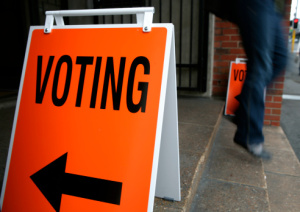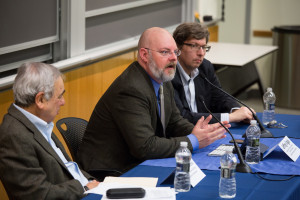
FDA approves remdesivir for the treatment of the coronavirus, the Supreme Court allows the Pennsylvania mail-in ballot deadline to remain in place, and more…
IN THE NEWS
- The U.S. Food and Drug Administration (FDA) approved the antiviral drug remdesivir for the treatment of COVID-19, making it the first FDA-approved treatment of its kind since the outbreak of the coronavirus in the United States. To support the approval, FDA relied on three separate clinical trials, including a study published in the New England Journal of Medicine that found that remdesivir reduced the course of the illness from 15 days to 11 days among a sample of 1,000 people. None of the studies cited found a statistically significant benefit to overall mortality risk. In a statement, FDA Commissioner Stephen Hahn emphasized that FDA’s approval is “supported by data from multiple clinical trials that the agency has rigorously assessed,” noting that it “represents an important scientific milestone in the COVID-19 pandemic.”
- In a 4-4 split, the U.S. Supreme Court allowed a court order extending Pennsylvania’s mail-in ballot deadline to stand. Pennsylvania Republicans had requested review of the Pennsylvania Supreme Court decision, which held that election officials are required to accept ballots postmarked by 8:00 p.m. on Election Day until 5 p.m. on November 6, and that ballots without a postmark should “be presumed to have been mailed by Election Day.” Democrats hailed the Supreme Court’s split as a victory that will boost Democratic votes in a key battleground state, since Pennsylvania Democrats have reportedly requested more than double the number of absentee ballots requested by Republicans.
- The U.S. Department of Justice along with 11 state attorneys general filed a lawsuit accusing Google of illegally protecting its monopoly. In the complaint, the Justice Department alleged that “Google has used anti-competitive tactics to maintain and extend its monopolies in the markets for general search services, search advertising, and general search text advertising—the cornerstones of its empire.” Google executive Kent Walker called the lawsuit “deeply flawed” and said that it “would do nothing to help consumers.” Democratic lawmakers recently released a report calling Google and other technology companies “the kinds of monopolies we last saw in the era of oil barons and railroad tycoons.”
- The U.S. Department of State issued a proposed rule to end its longstanding policy of allowing foreign citizens who qualify as skilled workers to receive short-term visas in lieu of H-1B visas. The short-term B-1 visa lasts only for six months, but applying for a B-1 visa is less expensive and time consuming than applying for the three-year H-1B visa. The State Department claims that businesses use B-1 visas to avoid rules that require H-1B visa holders to be paid at the same rate as American citizens doing similar work. The proposed rule follows the Trump Administration’s efforts earlier this month to restrict H-1B visa eligibility.
- The Supreme Court agreed to hear two cases involving disputes over Trump Administration immigration policies. In Trump v. Sierra Club, the Trump Administration challenged a lower court’s ruling that prohibited the Administration from using U.S. Department of Defense funding to build a wall along the southern border. In Wolf v. Innovation Law Lab, the Trump Administration appealed a lower court ruling that struck down a policy that requires asylum seekers arriving at the U.S.–Mexico border to remain in Mexico until their hearing. The Supreme Court allowed the policies to remain in effect during the appeals process. The American Civil Liberties Union emphasized the “irreversible harm” that asylum seekers face every day because of the “remain in Mexico” policy and vowed to fight “the Administration’s unconstitutional power grab and its unlawful construction of a border wall.”
- A judge for the U.S. District Court for the District of Columbia struck down a U.S. Department of Agriculture rule that would have reduced or terminated food stamp benefits for 700,000 Americans. The judge held that “the agency’s utter failure to address the issue renders the agency action arbitrary and capricious.” The rule would have made it more difficult for states to apply for waivers to exempt beneficiaries from meeting work or education requirements in order to receive benefits. New York Attorney General Letitia James called the decision “a win for common sense and basic human decency,” and added that “if implemented, this rule would have not only made it harder for thousands to feed their families and risk them going hungry, but would have exacerbated the public health crisis.”
- The U.S. Government Accountability Office accepted a request from Democratic senators to investigate possible violations of Centers for Disease Control and Prevention (CDC) and U.S. Food and Drug Administration scientific integrity and communication policies during the coronavirus pandemic. The senators alleged, for example, that the CDC’s testing recommendations for asymptomatic patients were written by U.S. Department of Health and Human Services (HHS) staff despite objections from CDC scientists. The senators stressed that the agencies “must be able to develop, review, and disseminate public health data, guidelines, and other information” based on science, and not “the political imperatives and moods of a President and his advisors.” An HHS spokesperson reportedly stated that “science and data have driven and will continue to drive the decisions at HHS.”
- Five environmental groups, represented by the American Civil Liberties Union of Oregon, filed a lawsuit against the U.S. Department of Homeland Security (DHS) for using tear gas during the racial justice protests in Portland, Oregon. The groups alleged that DHS violated the National Environmental Policy Act by failing to assess the environmental impact of the tear gas. The groups requested that the court order DHS to stop using chemicals such as tear gas until the agency completes and publishes an environmental impact study. Kelly Simon, interim legal director at the American Civil Liberties Union of Oregon, stated that the use of chemical weapons at the protest was “evidence of the Trump Administration’s racist disregard for public health and a safe living environment.”
- The U.S. Environmental Protection Agency issued a rule that will allow electric utility companies to keep coal ash in unlined pits provided that they meet certain safety criteria and demonstrate that there is not a statistically significant risk of groundwater contamination. In a statement, Dalal Aboulhosn, deputy legislative director at the Sierra Club, said that the new rule allows coal power plant owners to “skirt their moral and financial responsibility to vulnerable residents” and announced plans to challenge the rule in court. The new rule responded to a court ruling that directed the agency to revise its previous coal ash rule due to environmental and safety concerns.
- The U.S. Patent and Trademark Office issued a proposed rule standardizing its decision-making process for determining whether to review challenged patents. Under the America Invents Act, claimants can take patent validity challenges to the Patent Trial and Appeal Board instead of a district court. The current informal policy of the agency allows the Patent Trial and Appeal Board to refuse to hear a patent review application if an ongoing district court trial on the patent’s validity would reach a verdict before the Board’s review could be completed. In August, Google and Apple filed a lawsuit alleging that the informal policy violates the Administrative Procedure Act because the policy has not undergone the required notice-and-comment process.
WHAT WE’RE READING THIS WEEK
- In a recent report, the Climate-Related Market Risk Subcommittee of the Commodity Futures Trading Commission found that climate change poses significant risks to global financial markets. These risks include insurance coverage withdrawal from coastal areas, real estate devaluation, and climate catastrophe-induced recession. The subcommittee also found that existing laws give financial regulators adequate tools for addressing those risks. The subcommittee recommended that the U.S. Securities and Exchange Commission require companies to report climate risks and the United States to set a national price on carbon emissions to reduce emissions consistent with the Paris Agreement.
- In a recent paper, David Zaring, professor at the Wharton School, analyzed changes in regulatory enforcement against large banks after the passage of the Dodd-Frank Wall Street Reform and Consumer Protection Act. Zaring found three patterns of enforcement. First, multiple regulators levied fines against banks for the same misconduct. Second, regulators were more likely to sanction other banks for a particular kind of misconduct after they sanctioned the first bank for the conduct. Finally, some regulators bundled similar kinds of misconduct in the same enforcement actions. Zaring also stressed that his findings demonstrate the importance of secondary regulators, who lack responsibility for ongoing supervision of banks but who have nevertheless imposed greater fines on banks on average as compared to primary regulators.
- In a recent article in the New England Journal of Medicine, Ian Wolfe and Thaddeus Pope explained the impact of U.S. Health and Human Services regulations that would allow hospitals to refuse to provide patients with certain types of care—including palliative care and reproductive health services—on the basis of “institutional belief structures.” Wolfe and Thaddeus found that the growth of mergers between secular hospitals and Catholic corporations has left many patients without the option to seek care at secular hospitals, which in turn may lead to lower quality of care due to a lack of access to certain services. Wolf and Thaddeus argue that the “most effective solution may be for state regulators to assess proposed mergers to determine whether conscience-based objections will adversely affect the communities that the merging hospitals serve.”
FLASHBACK FRIDAY
- In an essay in The Regulatory Review, Abigail Slater, antitrust law section leader at the American Bar Association, discussed the role of corporate “DNA”—a company’s culture—in determining the outcome of antitrust investigations. Slater noted, for example, that “Bill Gates did not help his company’s case” when he appeared “evasive and uncooperative” during a Justice Department investigation. Similarly, the European Commission cited Microsoft as “flouting the rules” when issuing the company a fine. Slater then suggested that Microsoft’s decision to submit an antitrust complaint against Google showed that the company’s DNA had softened after their clashes with regulators.



